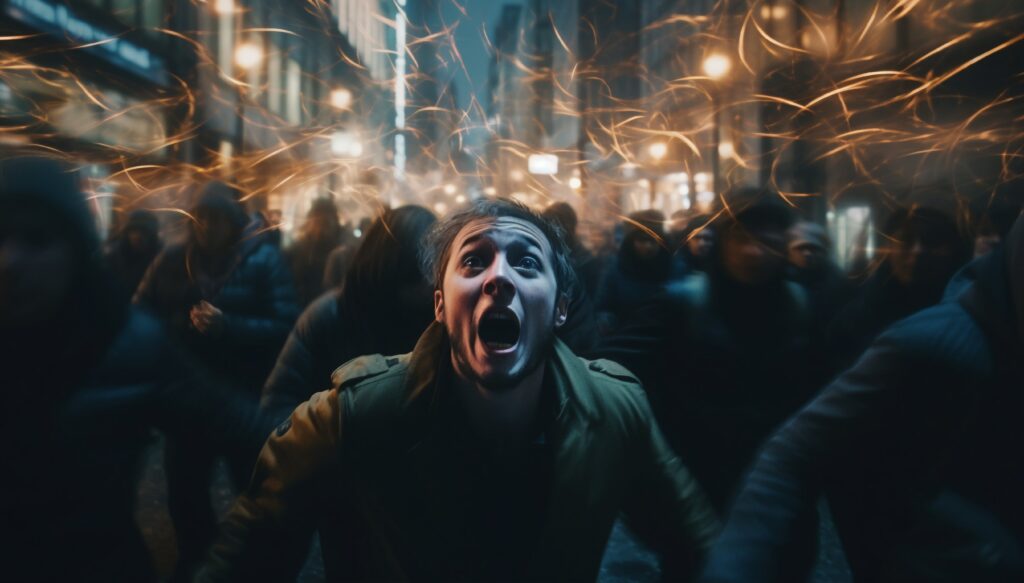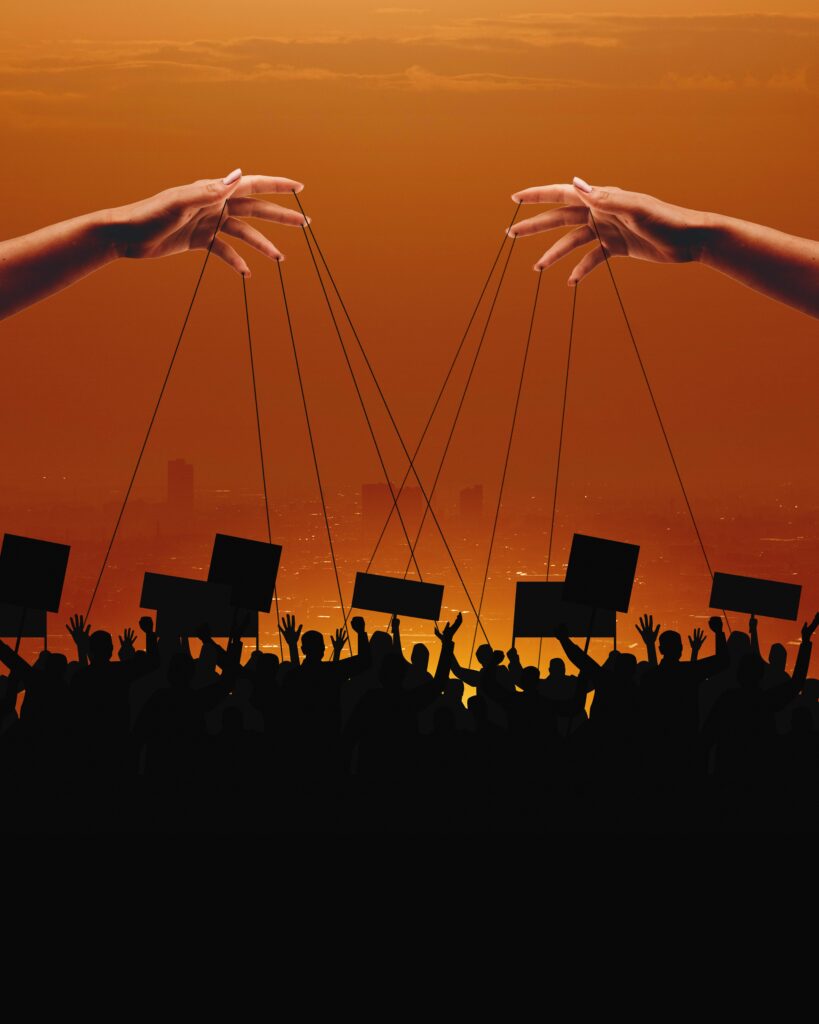Date: August 26, 2024
People are angry. The atrocious, most horrible crimes that took the life of a young doctor at the very hospital where she worked has made the nation angry. The disgusting manner in which the state administration, which is supposed to maintain law and order and ensure the safety of citizens, is working to cover up the crime making it more difficult for justice and truth to prevail, has made people angrier. While people are out on streets protesting and expressing their outrage, another horrible crime against two minor girls in another state makes the headlines. More anger ensues, more outrage, more protests. People want justice; and because so often justice is denied or delayed, they take the matter in their own hands, and the state goonda machinery is confronted with an angry mob!
But is mere expressing our outrage the solution? Where does all the outrage lead to? Nowhere. Except to some more outrage, some more displays of anger. Nothing really changes on the ground. The power dynamics and power games will continue. The weak will continue to lose their voice, the loudmouths and those with big budgets will continue to steer the direction of the polity. And life goes on, same old, same old.
In due time, the outrage will die down. The same old indifference, apathy and ignorance will rule. Gruesome violence toward women and children will continue. Some stories will get national coverage for days, majority might get a few lines in the fourth page of a local daily or will not even be reported. People will move on, to their own busy lives, their own problems of survival and social success. All the fury, the outrage, the protests will come to almost nothing.
Maybe some small purpose is served by all the outrage. To some extent it allows a momentary expression to the deep anger that is there, in all of us. But the real result is that we gradually end up becoming a society of perpetually angry, perpetually outraged. That is a serious problem, added on to the pile of many other serious problems facing our society.

These few cases which make the headlines bring to the forefront much bigger concerns. There is, of course, the concern about women’s safety. About the freedom of women and girls to feel secure and safe in their workplaces, in their homes, in their communities, in their schools, colleges, everywhere they happen to be. It is not a big ask actually. It is exactly what we should ask for men and boys too. We all know that the world has seen many, many horrible crimes committed against men and boys too.
So an even bigger concern is the failure of State machinery in doing what it is supposed to do as its most essential work – to ensure a safe environment for the citizens to move about freely, and to ensure that they have basic trust in the State administration and its law-and-order machinery in case of an untoward happening or circumstance. This is the least we should be expecting from those in-charge of governance in our democratic polity.
Our culture tells us about the ideal of Kshatriya – those who are temperamentally inclined to take up the work of governing, administering, and defending the people. The first virtue of the Kshatriya is to protect those who are weak and are suffering and fight a just and righteous battle. The Kshatriya’s key function is to maintain justice and prevent the strong from despoiling and the weak from being oppressed. But for several centuries now, this ideal of Kshatriya dharma has disappeared from the discourse and practice of politics, governance, and administration. In its place, we have the shallow mind-borne normative ethics which are the first thing to be thrown out the window the moment the lower vital nature comes up and easily gets tempted by the power that comes with a position of authority or a title or a badge. The corrupt, perverted mentality gets too occupied in grabbing more and more power, and doing all that it takes to protecting that power.
But there is an even more fundamental issue which must be of our concern. In this state of outrage let us not become vulnerable to – because the danger is always there – the pull of our lower tendencies, our animality, our infra-rationality.
Sri Aurobindo reminds us that one of core principles of individualistic democracy is that the reason and will of every individual in the society must be allowed to count equally with the reason and will of every other in determining its government, in selecting the essential basis and in arranging the detailed ordering of the common life. This brings up a very real and highly pertinent question – are we, you and I, really working to become reasonable and reason-enabled individuals? Are we really living our lives by reason? Or are we being led by our instincts, impulses and reactions, our biases and conditionings?
It is not easy to become a perfectly reason-enabled individual who is not ruled by instincts, impulses and biases. Having evolved from animals, we carry the burden of animality in us, we even carry the inertia of the vegetable and mineral world in our human forms. It is because of the imperfections of our gross human nature, our limitations resulting from our infra-rational mental tendencies, our inability to form reasonable judgements, and finally the limitations of the reason itself, that all systems and structures that we can come up with to organize our collective life will always fall short of the mental ideal.
Maybe in the ages to come the higher mind of the humanity will be ready to come up with a social-political system that is above and beyond the present ideal and form of democracy. But we are not there yet. We aren’t even yet ready in the mass for a more perfect democracy. Or even a better functioning of present version of democracy.
By democracy we do not mean only the right to vote, once every few years. Unfortunately, that is all that the ideal has been reduced to in most democratic countries. By democracy we mean a system of organizing our collective life which is based on the ideal of individual freedom. But in the present state of our individual and collective evolution, the ideal of individual freedom has also become a misguided one. Freedom does not mean an absolute license to do as one wishes, driven by one’s lowest instincts, impulses or prejudices. Both in individual as well as in collective life, freedom has always to be checked and regulated by individual and collective reason.
Reason does not survive when we are in the grip of a vitalistic, sensationalistic, impulsive outrage. Reason requires peace, not frenzy. Becoming aware of the fine print requires patience and keen analysis, not a gut response to a headline. Today, most of our media — broadcast and social media — thrives on and even encourages knee-jerk reactions through its instant poll and other such nonsense, adding fuel to the fire. Perhaps in many cases they end up lighting the fire itself.
Constructive opposition requires thoughtfulness, not mere a tendency to protest. Perhaps this thoughtfulness should begin with asking a tough question — are all cries of public outrage, protests genuine? Or is there some agenda being served by creating chaos and instability in the society? What could be the various forces at work behind all the seemingly impromptu outrage?

All societies have serious problems. Serious problems demand serious solutions which happen only when we are capable of thinking rationally, using the best abilities of reasoning, discernment and judgment. A vibrant democracy does not need to be a loud and outraged democracy. Our survival and growth as a democracy depends on our capability to reason things out. Calmly and deeply. In our legislative bodies, in our TV studios, in social media, on the ground.
Any democratic society necessitates its citizenry to have arrived at a reasonable level of mental training. Sadly, our education system does not always help us in this goal of preparing citizens who can think rationally, who can reason intelligently and who can discern keenly. All it generally does, for the most part, is to stroke up further the mechanical-vital-sensationalist parts of our minds where every bit of new information has the potential to either dull us further into a state of slumber or excite us into an immediate reaction to it.
We are not becoming a nation of thinkers, we are slowly becoming a nation of reactionaries. Our parliamentarians, news anchors, social activists, social media influencers — all through their loud reactionary stances are overtly or covertly egging the non-thinking masses to follow suit. Masses are quick to react, and as a result the nation witnesses a protest or agitation or outrage every week, over this issue or that.
This is true not only of India, but also of other countries. One of the biggest needs of the hour is to move away from this state of perpetual outrage. To learn how to become real thinkers, how to apply reason to address the serious problems we face in our societies and our nations.
~ Beloo Mehra
